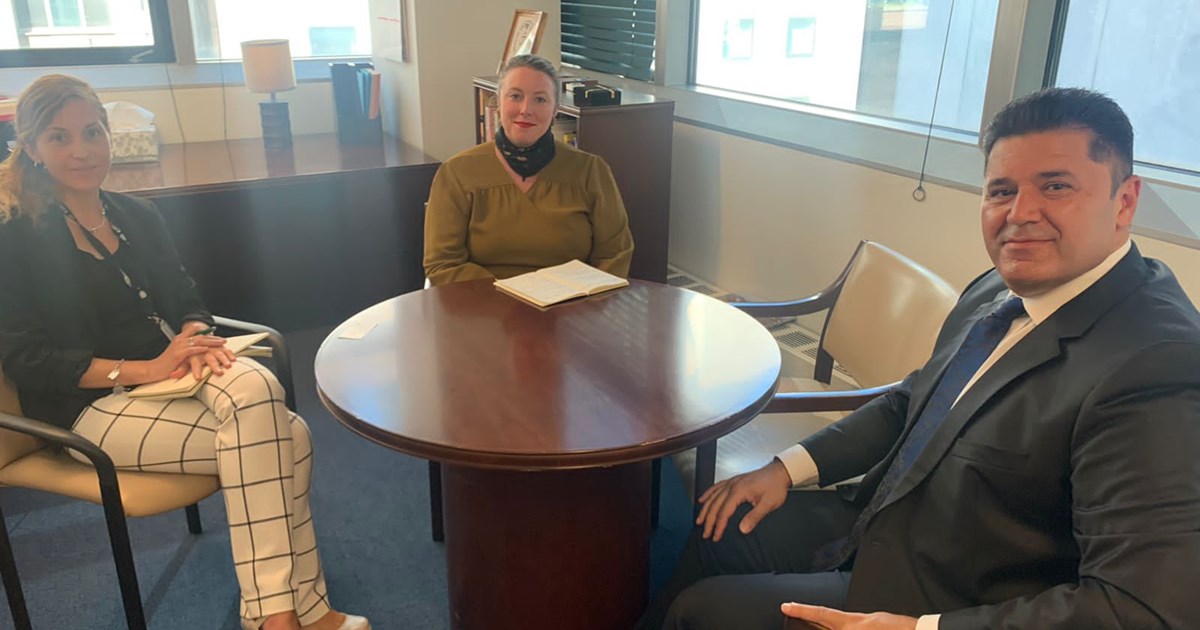Head of OCIA meets with Head of the Victims of Terrorism Programme at the UN Counter-terrorism Centre

Erbil, Kurdistan Region, Iraq (GOV.KRD) - Head of the Office of Coordination for International Advocacy (OCIA), Dr. Dindar Zebari on Saturday met with the Head of the Victims of Terrorism Programme at the UN Counter-Terrorism Centre (UNCCT), Ana Izar, to discuss ways to effectively address ongoing threats posed by the Islamic State (ISIS) and normalize the situation in the Sinjar region.
Dr. Zebari highlighted the continuous threat of terrorism the Kurdistan Region has faced since 2003, most recently in the fight against ISIS. He noted that all communities in the region, especially the Yazidis, have suffered tremendously at the hands of these terrorist groups. As a response to these acts, the Kurdistan Region Parliament enacted the Anti-Terrorism Law, which takes into account international principles such as the suspension of the death penalty.
Dr. Zebari added that the Kurdistan Region is surrounded by terrorist threats and instability in neighboring areas and, thanks to the Peshmerga forces, have successfully defended against those threats and even played a major role in defeating ISIS, holding the frontlines on more than 1,100 kilometers. He highlighted the importance for the United Nations to consider this when supporting the Kurdistan Region, especially in terms of capacity-building, cooperation, information exchange, and participation in international and regional conferences so that it may benefit from the expertise of other countries.
Speaking of the Kurdistan Regional Government’s efforts to support the work of the UN, Dr. Zebari noted the positive impact of coordinating with UNITAD, focused on information exchange, evidence collection, training, and other projects related to accountability which remains a critical step in promoting peace and security in Iraq. He noted it is particularly important for a region like Sinjar, where the terrorist threat persists unabated.
Dr. Zebari urged the international community to support the implantation of the Sinjar agreement under the supervision of the United Nations Assistance Mission for Iraq (UNAMI) to help normalize the situation between the Kurdistan Regional Government and the federal government of Iraq in areas outlined in Article 140 of the Constitution that continue to witness terrorist attacks and suffer casualties due to the security vacuum.
On the issue of human rights, Dr. Zebari noted the Kurdistan Regional Government’s Human Rights Plan was approved by the ninth cabinet and government representatives, as well as UNAMI, human rights activists, and NGOs who are key stakeholders and partners in its implementation, which will be overseen by the Coordinator for International Advocacy.
